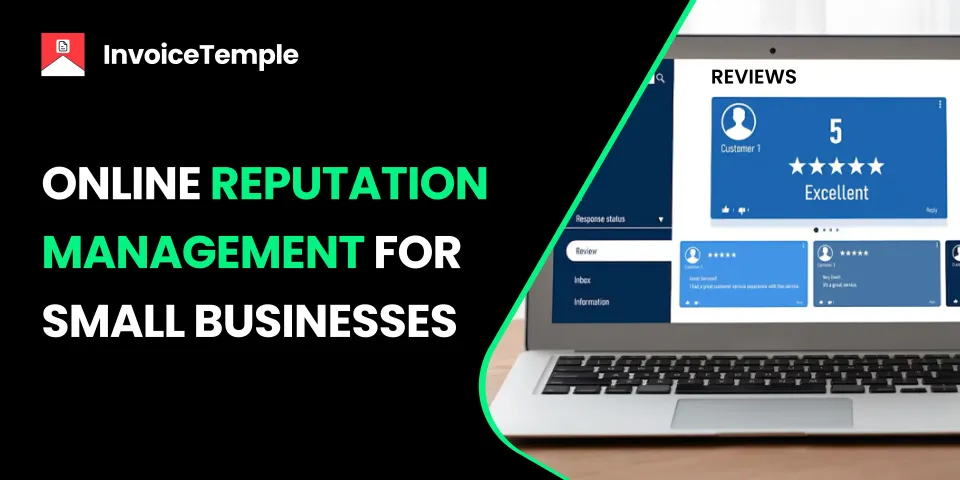Understanding Online Reputation Management: What Small Businesses Need to Know

Online platforms have evolved in numerous ways in this technological world. Both the positive and negative aspects of the business are being posted continuously on online platforms. These online platforms have become a primary outlet for people to share their opinions, whether good or bad.
According to common human mentality, negative things reach the audience faster than positive things. When your business obtains any negative reviews or customer complaints, it spreads like a wildfire and causes a complete downfall for the business. So, managing the online reputation of the business is crucial. Online reputation management plays a major role in running a successful business. This blog explains useful insights regarding online reputation management. Continue to read.
What is Online Reputation Management of Small Businesses?
Online Reputation Management, or ORM, is the process of reviewing and monitoring the mindset of the people who share their opinions about your business on the internet. It includes a series of steps as mentioned below.
1. Reviewing and tracking the customer’s opinion shared on the internet source.
2. Making a proper response to opinions shared, especially when it comes to negative reviews.
3. Enhancing the reputation by sharing better updates and always ensuring the online presence.
Reputation Management Platforms:
The online reputation of your business can be managed using different platforms, and some of them are mentioned below.
Owned Media - The owned media are the channels that are owned completely by your business. The full access will be in your hands. Some of the owned media forms are websites, blogs, email content, articles, etc.
These media platforms can create a great positive impact on the customers.
Shared Media - Shared media comprises social media platforms like Facebook, Instagram, X (formerly called Twitter), etc. Using these social media platforms, your business can reach all walks of the world. Even live sessions can be conducted via these platforms to solve the client’s issues.
Earned Media—Earned media is the platform where your business can be promoted without paying a fee. It includes reviewing online feedback sites and posting articles, blogs, etc., by mentioning or tagging your business in them.
Paid Media—Paid media is the platform where the business pays certain companies or organizations to promote the business. This can be done via making contracts with social media influencers, running Google ads, etc. The business can also do so by paying to promote its business in newspapers, television advertisements, magazines, etc.
Effective Tips for Online Reputation Management:
1. Design a Perfect Online Reputation Management Strategy:
For perfect online reputation management, a perfect strategy must be designed. Whether you work as a solo person or as a team, effective tips must be implemented. Assign separate tasks for each person so that the work won't become chaotic. Fix certain templates and guidelines for how to respond to the customers who share the feedback.
2. Continuously Monitor the Reviews and Find the Client’s History:
As the next step, continuously monitor and analyze the client’s reviews shared on the internet. Effective client management plays a crucial role here. Analyze the history of the clients and make perfect strategies to approach them.
3. Respond to the Client’s Feedback:
After analyzing the feedback, identify the character of the client. Some clients may be aggressive or humble; some may be deal seekers and frequent complainers. Understanding the client’s mentality helps in solving their issues better.
Even after responding to the customer’s opinion, a continuous monitoring process must be carried out. As online reputation management has become essential for business success, it must be done precisely to gain better results. For better client management and for generating professional invoices, online invoicing software can be used.
